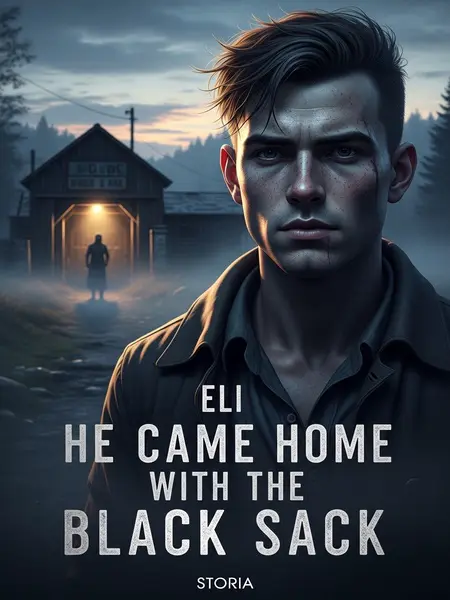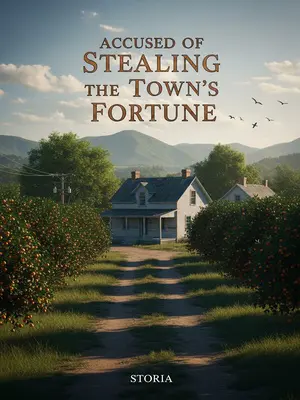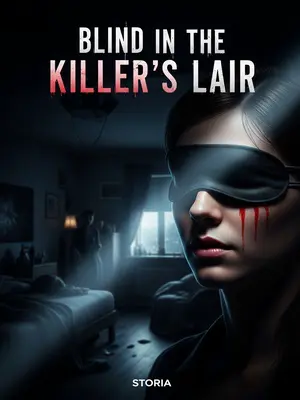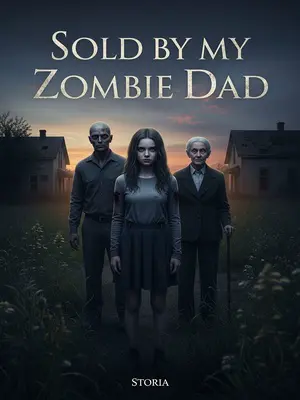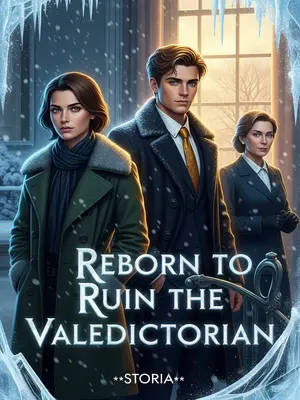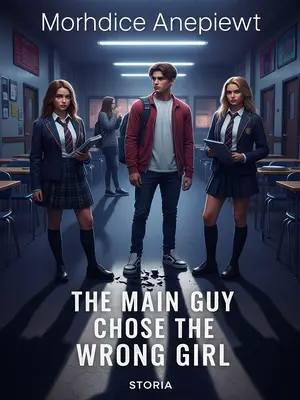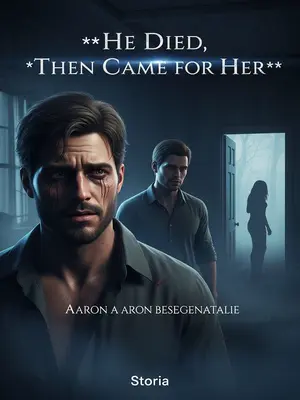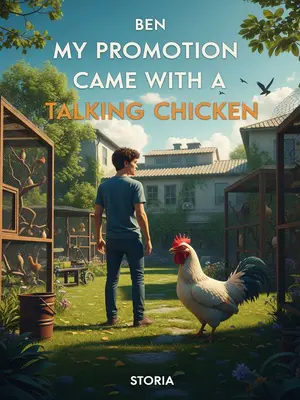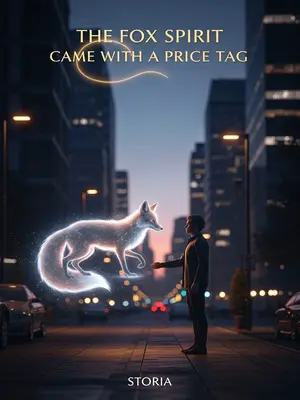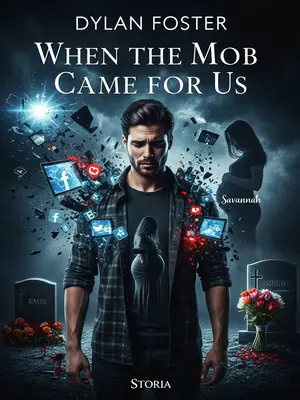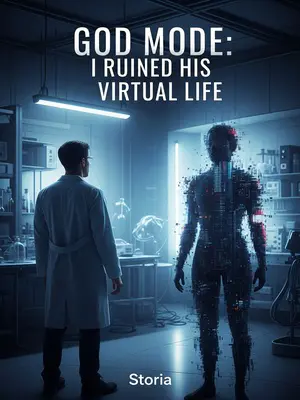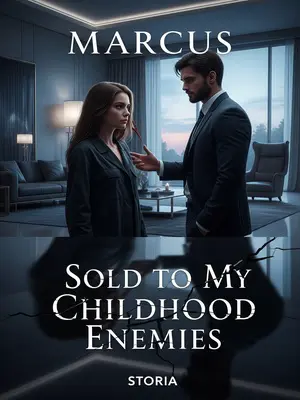Chapter 3: The Sigh in the Darkness
Guys bolted in every direction, dropping lunch pails and helmets. The fear was contagious, electric. I wanted to run too, but my legs wouldn’t move.
The foreman yelled for someone to grab the guy, but nobody dared go near him.
His voice cracked as he shouted, but no one budged. We all just stared, frozen.
It was Earl who had guts. He grabbed a pickaxe and swung at the thing's head. I flinched as the metal connected. It dropped to the ground and went still.
Earl’s face was white as chalk, but he didn’t hesitate. The thing crumpled, the sack collapsing in on itself. The silence that followed was deafening.
The whole place erupted, and the boss came running.
We heard boots pounding down the corridor, then the boss stormed in, cigarette dangling from his lips, eyes narrowed.
The boss, cigarette dangling from his lips, hollered at me and the foreman:
"Drag it inside. Let me see who's playing ghost."
He spat on the floor, impatience written all over his face. I hesitated, glancing at the foreman, but the boss wasn’t having it.
I hesitated, scared to touch that thing.
My hands shook. I didn’t want to get close, but the boss’s glare pinned me in place.
The boss shot me a look and flashed a twenty from his wallet.
He waved the bill like a carrot, lips curled in a smirk. “Come on, don’t be a chicken.”
Money talks. I forced myself to walk over.
I swallowed hard, reached down, and grabbed the thing’s arm. It felt wrong—cold, too light. The foreman followed, jaw clenched.
The foreman, hunched over, followed me. Our hands brushed the sack, and I could feel the shiver run through him, too.
He didn’t say a word, just kept his eyes on the floor. I could tell he was just as scared as I was.
As soon as we touched it, we knew something was off.
The body felt almost weightless, like it was made of straw instead of flesh and bone. My stomach turned.
Old-timers say dead bodies are always heavy.
That’s what my dad used to say—“The dead don’t want to leave.” But this was different. This was wrong.
But this thing was light. Unnaturally light.
It barely took any effort to lift. The foreman and I exchanged a look, both of us uneasy.
We just hauled it to the boss's office.
Every step felt like it took a year. The boss barked at us to hurry up, impatience sharp in his voice.
The boss didn't look at it but grabbed the foreman and demanded:
"Tell me the truth—what were you idiots doing down there?"
He shoved the foreman against the wall, his face inches from his. The room smelled like cigarettes and sweat.
The foreman's face turned white as a sheet.
He stammered, eyes darting everywhere but the boss’s face. His hands shook, clutching his hard hat like a shield.
Seeing the boss's fury, he stammered:
"We... drilled the wrong shaft."
His voice was barely a whisper. I could tell he was lying, but the boss just glared harder.
He was lying.
There’s only one tunnel. We all knew it. But no one dared say otherwise.
There's only one tunnel down there. How could we have drilled the wrong one?
It didn’t make sense. The foreman’s words hung in the air, heavy and false.
Besides, if we really had, none of us would have missed it.
We all knew the mine like the backs of our hands. You don’t just wander into the wrong tunnel.
Just as I was about to argue, I realized the place we came out from was a little off. Something about the tunnel felt wrong, like we’d stepped into a place we didn’t belong.
Something nagged at me—a twist in my gut. The light at the end of the tunnel wasn’t where it should’ve been.
Normally, you go down shaft one, you come up shaft one.
That’s the rule. Always. But today felt different, like the mine itself had shifted.
But somehow, we went down shaft one and came up shaft two.
Shaft two had been closed for years!
No one used shaft two. It was boarded up, the elevator rusted and dead.
There was no power—how did we get up?
I tried to remember the climb, but my mind was blank. It was like waking from a bad dream.
The strangest thing was, when I first came out of shaft two, nothing seemed wrong.
I didn’t notice at first. Everything looked the same—same gray sky, same dust in the air.
Not just me—except for the foreman, none of the others seemed to notice anything strange.
We all just shrugged it off, eager to get out of the dark. Only the foreman looked shaken, glancing over his shoulder.
Before I could think more about it, I saw the boss grab a broom handle propping up the door and start beating the foreman, yelling for answers.
The boss didn’t hold back. The thud of wood on flesh echoed in the small office. The foreman yelped, covering his head with his arms.
The foreman covered his head and screamed, practically begging:
"Uncle, I'm sorry, I just had a couple of beers. I won't do it again. Please don't hit me."
His voice cracked, desperation plain. I felt a pang of pity, even though I barely knew him.
The boss, panting, cursed him out:
"This mine's gonna be ruined by you sooner or later."
He tossed the broom aside, his chest heaving. The room stank of anger and fear.
After that, the boss tossed the stick and walked over to the thing on the floor.
He crouched down, squinting at the body. I held my breath, not wanting to see what happened next.
With one hand, he yanked off the burlap sack!
The sack came away with a puff of dust, and the room seemed to get colder.
I've always been scared of dead bodies, so I instinctively closed my eyes.
I couldn’t help it. My stomach lurched, and I squeezed my eyes shut, bracing for the worst.
I just heard the foreman scream like he was losing his mind.
The sound was raw, animal. It made my blood run cold.
It made my skin crawl.
I’d never heard a grown man scream like that before. It rattled me to my bones.
When I opened my eyes again, the boss had already covered the head with a rag.
He moved quick, hands shaking. The rag soaked up the coal dust, hiding whatever was underneath.
Then he started chain-smoking, muttering as he went:
"It really is Frankie Morales..."
He lit cigarette after cigarette, the smoke curling around his head. His voice was hoarse, like he’d seen a ghost.
At that point, he stubbed out his cigarette and said to us:
"I'll tell you where to take it. You two haul it back down to the bottom of the shaft!"
He didn’t look at us, just stared at the wall, eyes hollow. The order hung in the air, heavy and final.
The notebook ends there.
The last line trailed off, the words pressed deep into the page. My hands shook as I turned the page.
The next page was torn out, ragged at the edge.
A jagged edge, as if someone had ripped it away in a hurry. I wondered what was so terrible that it couldn’t be left behind.
After I posted the notebook online, I got a bunch of DMs and comments.
Notifications blew up my phone. Some people thought it was a hoax, others said it reminded them of stories from their own towns. A few just sent prayers.
A user named "rit" added me on Facebook Messenger. The request sat there, unread, for a moment while I wondered who would reach out after reading something like this.
The profile picture was blank, the name all lowercase. Something about it felt off, but curiosity got the better of me.
I accepted.
My finger hovered over the button for a second, then I clicked. The screen flashed, and the request was accepted.
But something about this person was off—after adding me, he didn't say a word.
No hello, no introduction. Just a blinking green dot. I waited, but nothing came.
I just ignored him and went back to dealing with my grandfather's funeral.
There was too much to do—forms to sign, flowers to order, calls to make. I set my phone aside, trying to focus on the living.
But this morning, I heard one of the funeral home staff carrying my grandfather mutter:
"Why is this old man so light? Was he starving?"
His words drifted through the hallway. I clenched my fists, anger prickling at the edges of my grief.
Another person glanced at the few old folks in the funeral home and sneered:
"Another case of kids who couldn't care less."
The words stung, even though they weren’t wrong. I glanced at my grandmother, worried she’d overheard.
I worried my grandmother would hear and feel worse, so I tried to distract her, but caught her looking at me with a look I couldn't quite read—part fear, part something else.
Her eyes were red, but there was something else there—something like suspicion, or maybe dread. I tried to smile, but she just shook her head and looked away.
She made a shushing gesture at me.
She pressed a finger to her lips, her eyes darting to the shadows in the corners of the room. I felt a chill, like maybe she knew more than she let on.
Looking at her, so small and frail, my heart ached.
She looked so small, hunched over in her faded cardigan. I wanted to tell her everything would be okay, but the words stuck in my throat.
After the funeral, I used the excuse of keeping her company to stay a few more days.
I told my job I needed time off, let my friends know I’d be out of touch. The old house creaked at night, but I didn’t want to leave her alone.
That night, I kept sorting through the notebooks in my grandfather's room.
Stacks of old papers, faded photographs, and loose change cluttered his desk. The air smelled like mothballs and dust. I lost track of time, flipping through the pages, searching for answers.
Close to midnight, I heard a sharp voice in the yard:
"Not enough time left... another fire and it's all gone."
The words drifted through the window, carried on the wind. My skin prickled with goosebumps. I froze, listening.
Then came a scratchy rustling sound.
It was like someone dragging burlap across gravel. The sound set my teeth on edge.
The more I listened, the more the voice sounded like my grandfather.
I strained to hear, my heart pounding. It was uncanny—like he was standing right outside, calling to me from the dark.
My scalp tingled. I hurried to look outside.
I crept to the window, careful not to make a sound. The backyard was bathed in moonlight, shadows stretching long and thin.
In the yard stood a figure with a black burlap sack pulled over his head!
The shape was unmistakable—tall, thin, shoulders slumped. The sack hung low, hiding his face. My breath caught in my throat.
He was covered in dirt, wearing my grandfather's old flannel and jeans.
The clothes were familiar, but wrong somehow—stiff with mud, streaked with black dust. My mind raced, trying to make sense of it.
But my grandfather's body had already been cremated!
I’d watched the ashes scatter, felt the heat of the flames. There was no way he could be standing there now.
What was that thing in the yard?
I pressed my hand to the glass, pulse racing. The figure didn’t move, just stood there, silent and waiting.
I broke out in a cold sweat, and just then, my phone suddenly buzzed.
The sound made me jump, nearly dropping the notebook. I fumbled for my phone, hands shaking.
"rit" sent a message:
[Don't look it in the eye!]
The words glowed on the screen, stark and urgent. My mouth went dry.
What did that mean?
I stared at the message, heart hammering. Before I could reply, the screen flickered.
I froze for a second.
The silence pressed in. I held my breath, listening for any sign the figure was still there.
But in that instant, the thing in the yard vanished.
I blinked, and the yard was empty. No footprints, no sign anyone had been there at all.
I quickly checked my phone again, and that message was gone too.
I scrolled through my messages, but there was nothing. It was like the warning had never existed.
This was bizarre. I sat at my desk for a long time, but couldn't figure it out.
All I could do was keep sorting through the notebook and post more of it online.
I took a shaky breath, snapped a photo of the next page, and uploaded it to the thread. Maybe someone out there could help me make sense of it all.
[Notebook Three]
June 4th.
I regret it.
The words were scratched deep, the pen nearly tearing the page. I could feel his fear bleeding through the paper.
I shouldn't have agreed to help the boss haul Frankie Morales.
I should’ve run the other way, but I didn’t. Now I can’t sleep. Every time I close my eyes, I see his face—or what was left of it.
The place where we left Frankie was an abandoned shaft.
The air down there was stale, colder than the rest of the mine. Even the lanterns seemed to burn dimmer.
There shouldn’t have been anyone down there.
It’s supposed to be empty—sealed off, forgotten. But the shadows felt crowded, like we weren’t alone.
But I swear, I heard people whispering all around us.
The whispers echoed off the stone, too quiet to understand but impossible to ignore. My skin crawled.
The boss told us to put Frankie down and hurry back, and no matter what we heard, not to look back.
His voice was sharp, urgent. “Don’t look back, no matter what. Just keep walking.”
But the sound of sheep bleating behind us made my knees weak.
It was so out of place, so wrong. Sheep, in a coal mine? The sound made my heart race.
How could there be sheep in an abandoned mine?
I glanced at the boss, but he just kept walking, jaw clenched. The foreman was sweating bullets.
But damn it, the foreman insisted on turning around to look.
He stopped dead, twisting around despite the boss’s warning. I wanted to grab him, but it was too late.
Then I heard him yell, almost crazed:
"Black burlap sacks! So many black sacks! Every head has one!"
His voice cracked, terror raw in every word. He started backing away, stumbling over loose rocks.
"They're coming! They're coming! Ah—"
He screamed, the sound echoing down the tunnel. My blood turned to ice.
I knew something was wrong right away, so I dragged him and ran.
I grabbed his arm, hauling him after me. The darkness pressed in, the whispers and sheep cries growing louder.
The sheep cries around us got louder and louder. I could feel those things chasing us.
Every step felt like running through molasses. My lungs burned, but I didn’t dare stop.
We ran all the way to the shaft entrance and collapsed on the ground, gasping for breath.
We tumbled out into the weak daylight, gasping for air. My hands shook so badly I could barely light a cigarette.
But strangely, after that day, the foreman just disappeared.
He didn’t come to work, didn’t call. His bunk stayed empty. The others whispered, but no one said anything out loud.
The boss said he quit and went back to his hometown.
That’s what the boss told us, anyway. But I saw the look in his eyes—he didn’t believe it either.
But a few workers whispered they saw a strange figure wandering in the tunnels, and also heard sheep cries.
They said the shadows moved when no one was there, and sometimes, in the deepest parts of the mine, you could hear the bleating of lost sheep.
That figure looked more and more like the foreman.
Some swore they saw him, face hidden by a black sack, wandering the tunnels long after his shift was supposed to end.
[Notebook Four]
June 6th.
This job is so cursed, I can't take it anymore!
I want to quit. Every night, I dream of black sacks and empty eyes. I wake up drenched in sweat, heart pounding.
But thinking of home, of Maribel, taking care of the kids by herself—it's tough.
I see her face in my mind, tired but hopeful. The kids need shoes, Maribel needs medicine. I can’t let them down.
I have to grit my teeth and hold on, at least until payday.
Just a few more days. I keep telling myself that. Just a few more days.
Today, something strange happened again when we went down the mine.
It never ends. The mine has a way of twisting things, making you doubt what’s real.
A worker got hit by a chunk of falling coal.
It happened fast—a rumble, a shout, then silence. We rushed over, hearts pounding.
I quickly called Earl to help, and together we carried the worker up the shaft.
We grabbed him under the arms, hauling him up the rickety elevator. My hands were slick with sweat.
Just as we got out, Earl suddenly shouted and jumped back.
He dropped the man’s legs, stumbling away. His face was white as a sheet.
"How did we end up carrying out a dead man?"
His voice shook, eyes wide with fear. I looked down, confused.
I looked down and realized what I was holding wasn't my coworker at all.
The body in my arms felt wrong, too light, too cold. I stared, heart pounding.
It was Frankie Morales, the one we'd already dealt with!
The same burlap sack, the same coal-stained clothes. I nearly dropped him in shock.
How could this be?
My mind spun. We’d buried him, left him in the shaft. He couldn’t be here now.
Earl and I just stared at each other, speechless.
We just stood there, staring at each other, too scared to speak.
After a while, Earl snapped out of it and yelled:
"This shaft is so haunted, it's messing with us."
He kicked at the dirt, voice shaking. I nodded, unable to find words.
I nodded, staring at the pitch-black entrance, scared out of my mind.
The mine seemed to swallow all sound, all light. I didn’t want to go back in.
Earl got worked up and said he was going to find the boss.
He stomped off, muttering curses. I grabbed his arm, trying to stop him.
I hurried to stop him.
I whispered, “Don’t do it, Earl. Let’s just keep our heads down.”
This was already weird enough, and the boss wouldn't want anyone to know.
The boss hated trouble. Anyone who brought it got fired, no questions asked.
Earl's a straight shooter; if this got out, the boss might fire us and we wouldn't get paid.
I couldn’t risk losing the job—not now. Earl knew it too, but he was too angry to care.
Earl said:
"I know what you're worried about. But we can't just throw this thing back in the shaft, or something else will happen sooner or later. The boss has to handle it right."
He looked me dead in the eye, voice steady. “We need to do this by the book, Jack. Or we’ll end up like the others.”
After that, Earl carried Frankie off to find the boss.
He slung the body over his shoulder, jaw set. I watched him go, dread twisting in my gut.
By the time the shift changed that night, I still hadn't seen him.
His bunk stayed empty. The others whispered, but no one went looking.
I checked the clock—it was already 10 p.m., and Earl's bunk was still empty.
I lay awake, staring at the ceiling, listening to the wind howl outside.
Tomorrow morning, I have to ask the boss where Earl went.
But I already knew I wouldn’t get a straight answer.
The funeral was almost over.
The house was quiet, the air heavy with loss. I tried to keep busy, but every little thing reminded me of him.
While my grandmother was lighting a candle and saying a prayer, I asked her about the coal mine.
She paused, the match trembling in her hand. Her eyes flickered with something like fear.
My grandmother can't read. When I brought it up, she looked startled and asked how I knew.
She stared at me, mouth open. “Who told you about that place?” I showed her the notebook, and her face crumpled.
I took out the yellowed notebook, and she started crying again.
She pressed it to her chest, rocking back and forth. “He never wanted anyone to know,” she whispered.
From what I remember, she was always good to my grandfather.
She’d save the best piece of pie for him, mend his shirts by hand. They fought sometimes, but it was always over small things—never about love.
His favorite dish was fried catfish, and she made it all the time.
Every Friday night, the house would fill with the smell of cornmeal and hot oil. Grandpa would sit at the table, grinning like a kid.
Even after he died, she still set a plate of fried catfish in front of his photo.
It was a ritual, her way of keeping him close. She’d light a candle, set the plate down, and whisper a prayer.
After lighting a candle for my grandfather, she said with red eyes:
"Before your grandpa went down in the mine, he was cheerful, and smart, too. He worked at the mine for two months, survived, and brought home a wad of cash. But the day he came home, he looked like a lump of coal."
Her voice was thick with tears. “He wasn’t the same. It was like something followed him home.”
Besides the coal dust, his body was covered in scrapes and bruises. It scared me half to death.
She dabbed at her eyes, remembering. “He wouldn’t talk about it. Just kept locking the doors, checking the windows.”
I asked him questions, but he wouldn't answer, just kept telling me to bolt the door.
He’d double-check every lock before bed, sometimes three or four times. It made me nervous.
Not long after that, your grandpa changed completely.
He stopped laughing, stopped telling stories. The house felt colder, emptier.
During the day, he buried himself in work, and almost every month brought home a wad of cash.
But at night, he talked in his sleep every single night.
I’d hear him muttering, sometimes crying. I tried to wake him, but he’d just turn away.
I couldn't understand a word he said.
It sounded like gibberish, or maybe another language. Sometimes it was just numbers, counted over and over.
Later, as time passed, I finally understood one sentence.
She took a shaky breath, voice trembling. “He said: ‘How could it be you...’”
He said: "How could it be you..."
The words echoed in the candlelight. I shivered, remembering the fear in his eyes.
Before my grandmother finished, the house lights flickered and went out.
The room plunged into darkness, the only light coming from the flickering candles.
We both jumped.
My grandmother gasped, clutching my arm. The silence was thick, broken only by the sound of our breathing.
At that moment, only a few prayer candles and the flame in front of my grandfather's photo gave off a faint light.
The shadows danced on the walls, making the old house feel even older. I reached for my phone, but the battery was dead.
The wiring in this old house is a mess—maybe the circuit tripped.
I tried to stay calm, reminding myself it was probably nothing. But my heart wouldn’t slow down.
I was about to grab a flashlight when I heard a long sigh in the dark:
"Sigh—"
The sound was soft, almost mournful. It raised the hairs on the back of my neck.
I thought it was my grandmother and asked:
"Grandma, why are you sighing?"
My voice sounded too loud in the stillness. She squeezed my hand, her fingers cold.
"It's not me, Eli. Don't scare your grandma."
She tried to sound stern, but her voice shook. I could tell she was scared too.
She paused, then said:
"Could it be your grandpa is back?"
The words hung in the air, heavy as stone. I swallowed hard, not sure what to believe.
As soon as she finished, the sigh sounded again:
"Sigh—"
This time, it was louder, closer. My skin prickled with fear.
This time I was sure the sound came from my grandfather's old photo.
The flame flickered, casting strange shadows over his face. I felt like he was watching us, waiting.
At that moment, my grandmother found the flashlight.
She clicked it on, the beam shaky as she pointed it toward the mantel.
She turned it on and shined it at my grandfather's photo.
The light caught on the frame, illuminating the plate of catfish she’d set out earlier.
I saw that the fried catfish she had just placed there was now nothing but bones.
The flesh was gone, picked clean. Only the bones remained, gleaming in the flashlight’s beam. My stomach twisted.
My grandmother immediately burst into tears, crying and asking:
"Old man, is that really you?"
Her sobs filled the room. She reached out, fingers trembling, but no one answered.
No one answered.
The silence was thick, suffocating. I wanted to comfort her, but I didn’t know how.
At that moment, from the dark bedroom came a scratchy rustling sound.
It was the same sound I’d heard in the yard—the scrape of burlap, the whisper of dust.
Then the house lights suddenly flicked on.
The sudden brightness made me blink. For a moment, everything looked normal again. But I knew it wasn’t.
I hurried into the bedroom.
My footsteps echoed on the old wooden floor. The air smelled like coal and something older, something rotten.
As soon as I stepped in, I gasped.
On the bed was a black burlap sack and my grandfather's old flannel shirt and jeans.
They were laid out neatly, as if waiting for someone to put them on. The sack was slumped, empty, but I could still smell the coal dust.
But now, the clothes were covered in pitch-black coal dust, too.
It coated everything, thick and greasy. I coughed, covering my mouth with my sleeve.
I quickly called my grandmother over.
“Grandma, you need to see this,” I called, voice shaking.
She took one look and gasped: "Weren't these the clothes we burned with your grandpa?"
Her voice was barely more than a whisper, but it was sharp with fear. She clung to the doorframe, eyes wide, as if she expected him to walk in at any moment.
